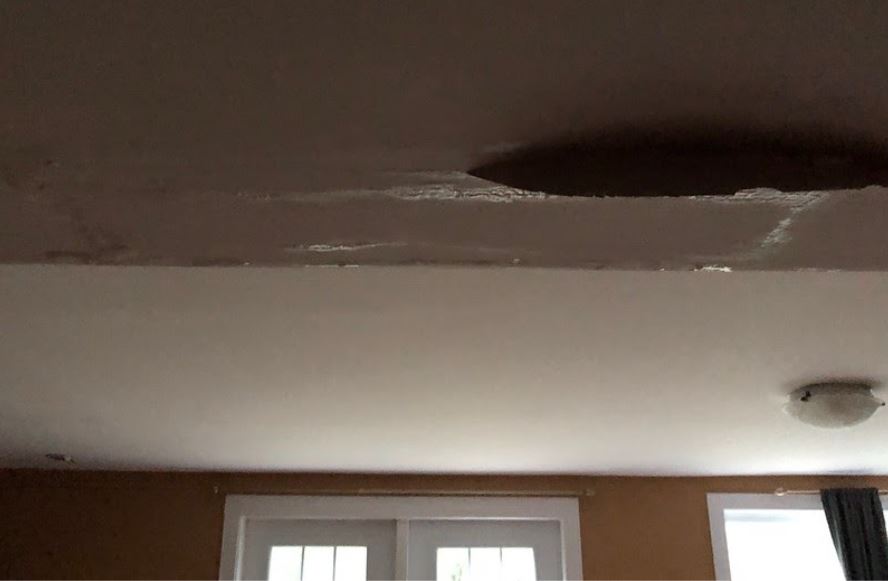Every person seems to have his or her own way of thinking in relation to How to detect water leaks in your home.

Leaks not only create waste of water yet can also cause unnecessary damages to your residence as well as promote undesirable natural growth. By recognizing and also looking for daily scenarios that trigger leakages, you can protect your home from future leaks and also unnecessary damages.
Instant temperature level adjustments.
Severe temperature modifications in our pipes can trigger them to expand and contract all of a sudden. This expansion and tightening might trigger splits in the pipelines, particularly if the temperature are below freezing. It would be best if you watched on exactly how your plumbing works. The presence of the formerly mentioned scenarios often suggests a high threat.
Rusty water supply
This may be the cause of discoloration or bending on your water pipes. If our plumbing system is old, take into consideration replacing the pipelines because they are at a greater threat of corrosion than the newer models.
Faulty Pipe Joints
The factor at which your pipelines connect is often the weakest web link in the waterline. Pipeline joints can wear away over time, resulting in water leakages. The majority of pipeline joints are not quickly visible. If you have noisy pipelines that make ticking or banging sounds, particularly when the hot water is turned on, your pipe joints are probably under a lot of pressure. It is recommended to have your plumber inspect your system once a year.
Encroaching roots
A lot of water leakages begin outside the house instead than inside it. You may notice damp spots or sinkholes in your yard, and that might indicate that tree origins are getting into water lines triggering water to seep out.
Poor Water Connectors
At times, a leak can be created by loose hoses and pipes that provide your appliances. In case of a water connections leakage, you may see water running straight from the supply line or pools around your home appliances.
Obstructed Drains
Obstructed drains could be irritating and inconveniencing, but they can in some cases wind up triggering an overflow bring about break pipes. Keep eliminating any type of products that might drop your drains pipes that might obstruct them to avoid such hassles.
All the above are causes of leaks yet not all water leaks result from plumbing leakages; some leakages may originate from roofing system leaks. All leaks must be repaired instantly to avoid water damages.
Leakages not just create waste of water but can additionally cause unneeded damages to your residence and advertise undesirable organic development. By looking as well as comprehending for day-to-day scenarios that trigger leaks, you can shield your house from future leaks as well as unneeded damage. Today, we will look at 6 leakage causes that might be triggering your pipes to trickle.
At times, a leakage can be created by loose tubes as well as pipes that supply your devices. In case of a water connections leakage, you may notice water running directly from the supply line or puddles around your appliances.
How To Check For Water Leak In Your Home
How To Check for Leaks
The average household's leaks can account for nearly 10,000 gallons of water wasted every year and ten percent of homes have leaks that waste 90 gallons or more per day. Common types of leaks found in the home are worn toilet flappers, dripping faucets, and other leaking valves. These types of leaks are often easy to fix, requiring only a few tools and hardware that can pay for themselves in water savings. Fixing easily corrected household water leaks can save homeowners about 10 percent on their water bills.
To check for leaks in your home, you first need to determine whether you're wasting water and then identify the source of the leak. Here are some tips for finding leaks:
Take a look at your water usage during a colder month, such as January or February. If a family of four exceeds 12,000 gallons per month, there are serious leaks.
Check your water meter before and after a two-hour period when no water is being used. If the meter changes at all, you probably have a leak.
Identify toilet leaks by placing a drop of food coloring in the toilet tank. If any color shows up in the bowl after 10 minutes, you have a leak. (Be sure to flush immediately after the experiment to avoid staining the tank.)
Examine faucet gaskets and pipe fittings for any water on the outside of the pipe to check for surface leaks.
Undetected water leaks can happen without the home or business owner even realizing. If you suspect a water leak, but not able to find the source. It is time to contact a professional water leak detection service, The Leak Doctor.
How To Find a Water Leak In Your Home
https://www.leakdoctor.com/blog/How-To-Check-For-Water-Leak-In-Your-Home_AE197.html

I was made aware of that write-up about Common Water Leaks In House through an associate on another web address. Be sure to take a moment to share this content if you enjoyed reading it. Kudos for your time. Come back soon.
Access certified emergency plumbing excellence.